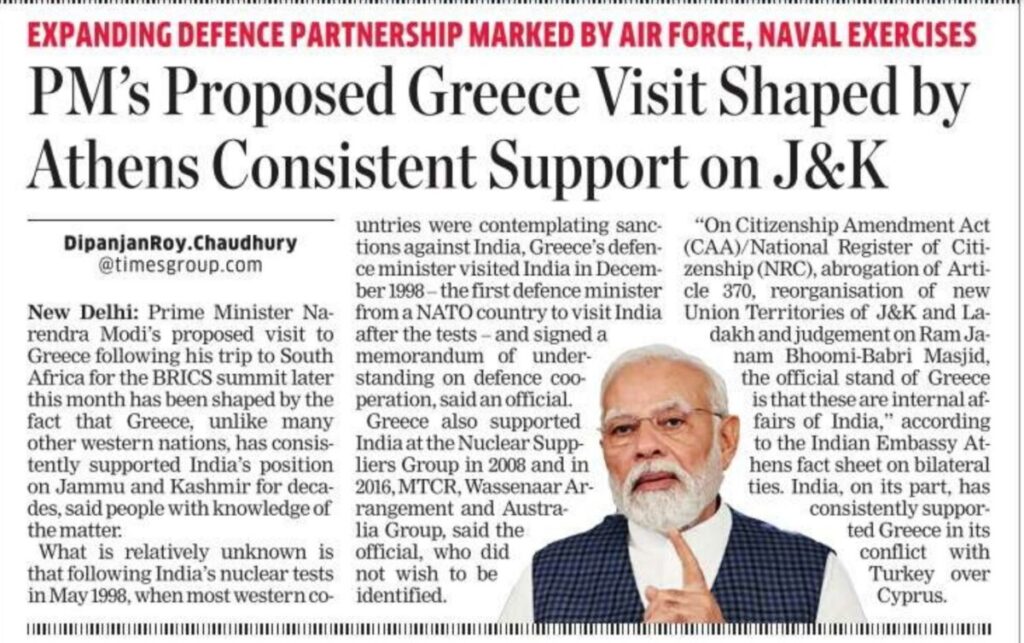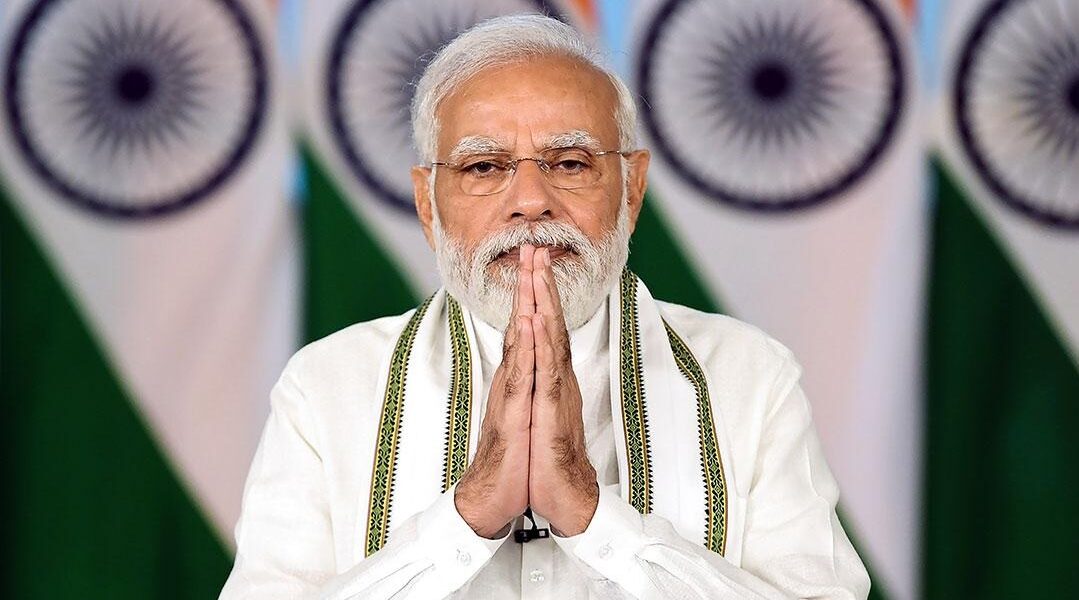Indian Prime Minister Narendra Modi plans to make a historic visit to Greece at the end of the following the BRICS summit in South Africa.
This news has caused a sensation in India, with local media commenting and trying to find as much information as possible.
The report by Dipanjan R Chaudhury of Economic Times:
Prime Minister Narendra Modi's proposed visit to Greece following his trip to South Africa for the BRICS summit later this month has been shaped by the fact that Greece, unlike many other Western nations, has consistently supported India's position on Jammu and Kashmir for decades, said people with knowledge of the matter.
What is relatively unknown is that following India's nuclear tests in May 1998, when most Western countries were contemplating sanctions against India, Greece's defence minister visited India in December 1998 - the first defence minister from a NATO country to visit India after the tests - and signed a memorandum of understanding on defence cooperation, said an official.
Greece also supported India at the Nuclear Suppliers Group in 2008 and in 2016, MTCR, Wassenaar Arrangement and Australia Group, said the official, who did not wish to be identified.
"On Citizenship Amendment Act (CAA)/National Register of Citizenship (NCR), abrogation of Article 370, reorganisation of new Union Territories of J&K and Ladakh and judgement on am Janam Bhoomi-Babri Masjid, the official stand of Greece is that these are internal affairs of India," according to the Indian Embassy Athens fact sheet on bilateral ties. India, on its part, has consistently supported Greece in its conflict with Turkey over Cyprus.

PM’s proposed Greece visit shaped by Athens consistent support on Jammu & Kashmir. In 1998 when several Western states threatened sanctions after nuclear tests Greece sent its def minister to India — My report @ETPolitics @ETDefence — https://t.co/Rl8G456T3l pic.twitter.com/jFsa1tAucw
— Dipanjan R Chaudhury (@DipanjanET) August 13, 2023


